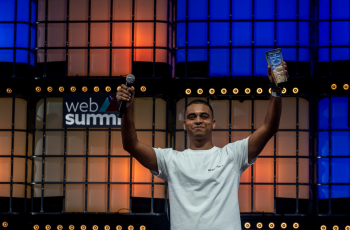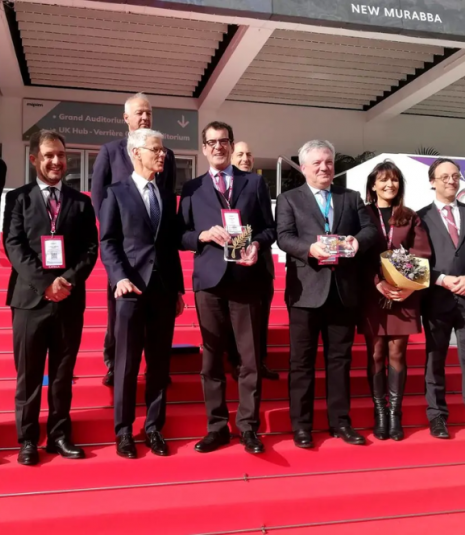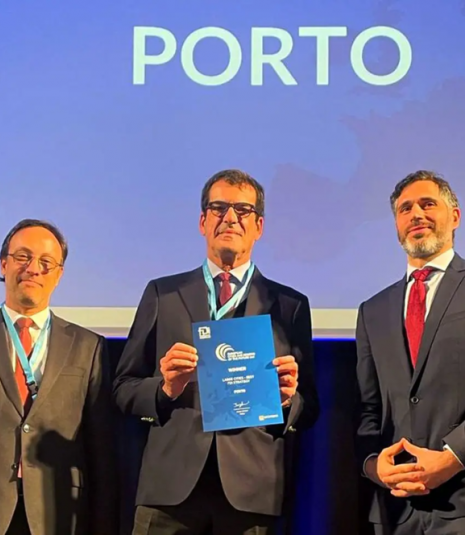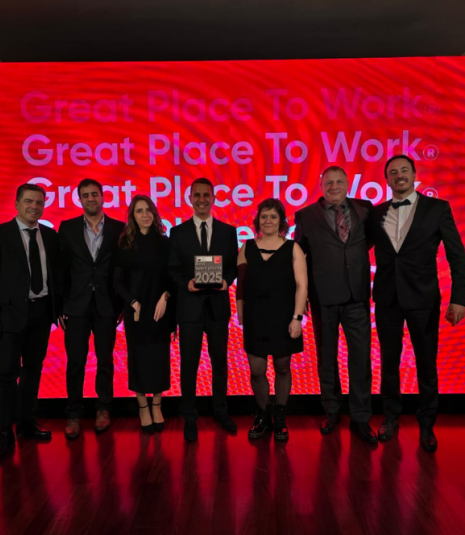Porto-based company wins Web Summit's innovative business competition

Expresso
· 05 Nov 2021
Smartex won the Web Summit start-ups contest. The company did not win the public's choice but ended up gathering the preference of the jury of experts.
If it were up to the public's choice, the victory would have been handed to Okra Solar, a company that came from Cambodia and collected 46% of the votes of the public present at the technology show that is taking place in Lisbon. Smartex got 42% of the votes, while Lisa, a German company that developed a tool that streamlines e-commerce, got 13% of the votes.
Hanna Henig, Information Director at Siemens, delivered the award (which did not include a monetary prize) and explained that the jury's choice - which determined the victory - took into account the positioning of Smartex and the value proposition that the start-up from Porto has been presenting to the market. It is not the first time that a start-up created by Portuguese people wins the prestigious Web Summit contest: in 2014, the contest was won by Codacy, a company that develops analysis tools for software programming codes.
Smartex has been gaining clients among textile factories and producers with devices that use cameras to capture images of fabrics as soon as they leave the looms. The images are analyzed by an artificial intelligence software that, according to the mentors of the Porto company, allows the reduction of fabric waste and defective garments to almost zero.
Smartex has already secured three million dollars (2.6 million euros) in contracts - and many of them outside Portugal, especially Turkey, as well as countries in Europe. Currently, the company has offices in Porto, in the Chinese city of Shenzhen, and in the American city of San Francisco.
Along with the analysis of fabrics, the devices created by Smartex can intervene and stop, at the right moment, the weaving, according to the error tolerance requirements that are defined for each piece or manufacturing unit.
For now, this technology can only be used in circular looms. António Rocha, one of the mentors of the business, reminded Expresso, shortly after presenting the business model on the main stage of the Web Summit, that circular looms are responsible for half the production of textiles in the world.
The segment is already promising, but Smartex intends to go further: "We also plan to expand this technology to other types of looms. And later we want to apply this solution to the paper, plastic, and metal industry," he told Expresso.
To date, Smartex's technology has already saved 7.5 million liters of water and 67 billion tons of fabric among its customers.
Smartex, a company based at the Science and Technology Park of the University of Porto (UPTEC), won the competition for entrepreneurship and innovative businesses of Web Summit. The announcement was made this Thursday afternoon on the main stage of the Web Summit, in Lisbon. Porto´s company distinguished itself from the other finalists with a device that eliminates fabric waste in textile factories.
If it were up to the public's choice, the victory would have been handed to Okra Solar, a company that came from Cambodia and collected 46% of the votes of the public present at the technology show that is taking place in Lisbon. Smartex got 42% of the votes, while Lisa, a German company that developed a tool that streamlines e-commerce, got 13% of the votes.
Hanna Henig, Information Director at Siemens, delivered the award (which did not include a monetary prize) and explained that the jury's choice - which determined the victory - took into account the positioning of Smartex and the value proposition that the start-up from Porto has been presenting to the market. It is not the first time that a start-up created by Portuguese people wins the prestigious Web Summit contest: in 2014, the contest was won by Codacy, a company that develops analysis tools for software programming codes.
Smartex has been gaining clients among textile factories and producers with devices that use cameras to capture images of fabrics as soon as they leave the looms. The images are analyzed by an artificial intelligence software that, according to the mentors of the Porto company, allows the reduction of fabric waste and defective garments to almost zero.
Smartex has already secured three million dollars (2.6 million euros) in contracts - and many of them outside Portugal, especially Turkey, as well as countries in Europe. Currently, the company has offices in Porto, in the Chinese city of Shenzhen, and in the American city of San Francisco.
Along with the analysis of fabrics, the devices created by Smartex can intervene and stop, at the right moment, the weaving, according to the error tolerance requirements that are defined for each piece or manufacturing unit.
For now, this technology can only be used in circular looms. António Rocha, one of the mentors of the business, reminded Expresso, shortly after presenting the business model on the main stage of the Web Summit, that circular looms are responsible for half the production of textiles in the world.
The segment is already promising, but Smartex intends to go further: "We also plan to expand this technology to other types of looms. And later we want to apply this solution to the paper, plastic, and metal industry," he told Expresso.
To date, Smartex's technology has already saved 7.5 million liters of water and 67 billion tons of fabric among its customers.




